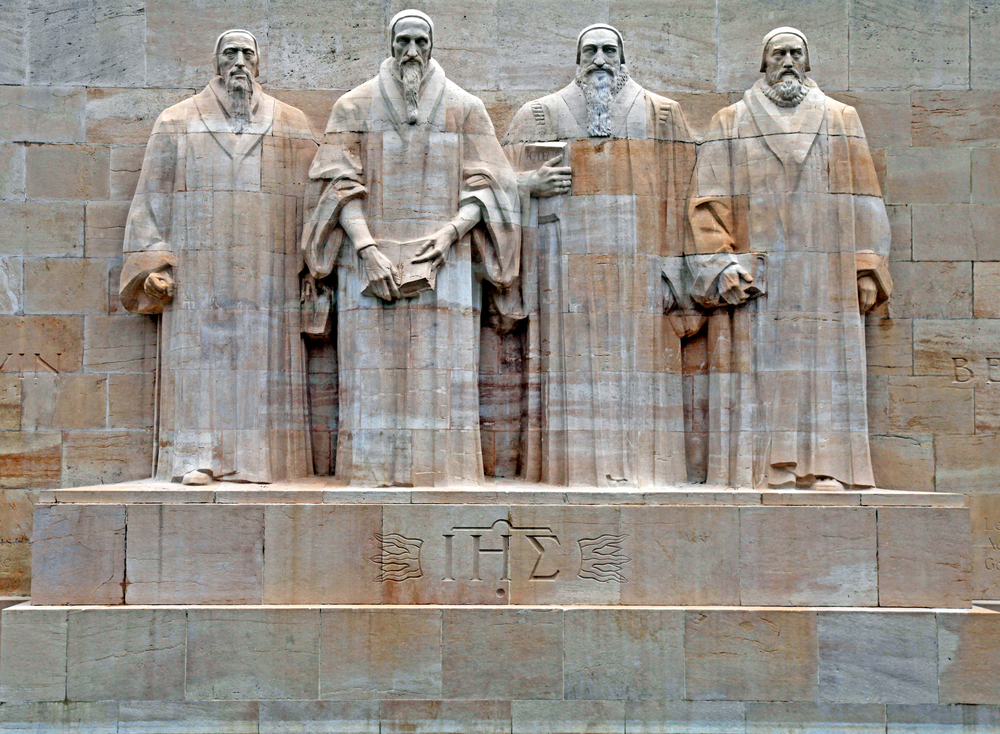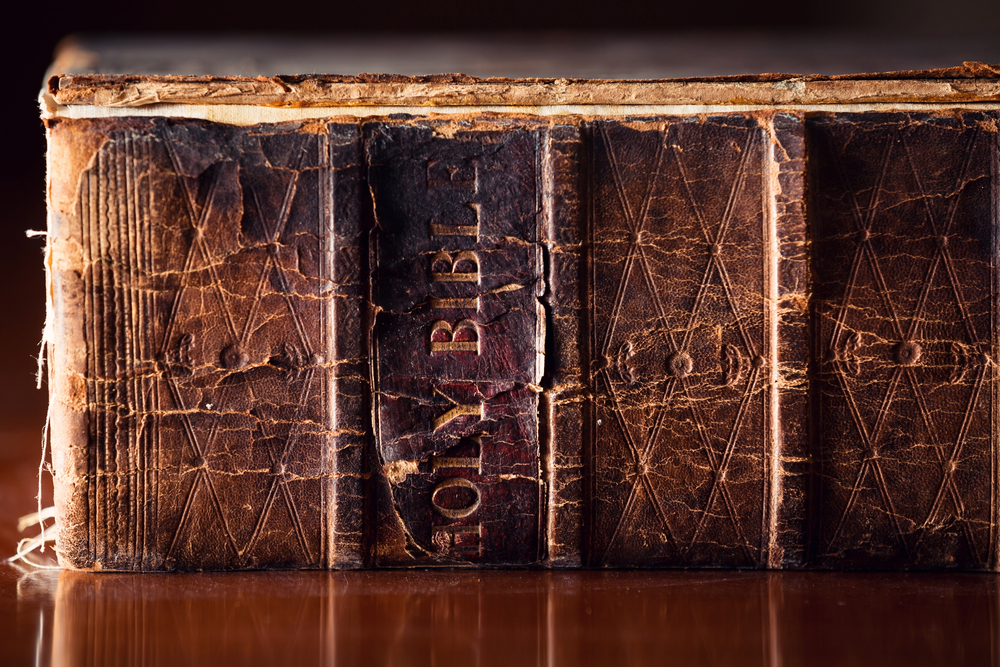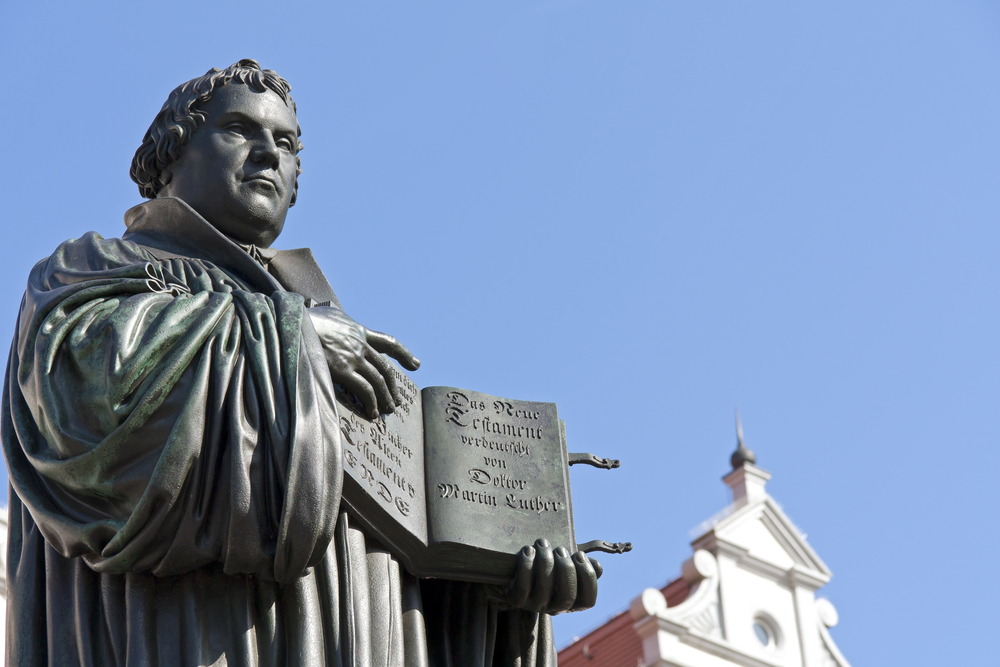The Priesthood Of All Believers And The Protestant Reformation

For most leaders of the Protestant Reformation... the priesthood of all believers was of central importance.
When we think of the Protestant Reformation's effects, some important gospel themes come to mind. The first, is a renewed and vigorous discussion of justification by faith alone, as well as the priesthood of all believers in scripture. God graciously forgives and befriends sinners by imputing to them the righteousness of His Son, who bore the punishment for their sins on the cross. More than that, sinners receive this gift by faith in Christ—faith plus nothing. Moreover, this doctrine, faithfully preached by the Protestant Reformers, smashed the Medieval world-order of mediating priests, grace-infusing sacraments, undispelled guilt, and masochistic self-atonement.
Closely related to the biblical doctrine of justification is that of the priesthood of the believer. Again, the man who is God’s friend has the authority to serve as His priest. Our concern in the next article will be the social and political implications of that priesthood. And, of course, you get plenty of definitions of terms. But first, we need to consider from Scripture exactly what a priest was and did.
The Priesthood of All Believers In Scripture
Sometimes in Scripture, the word for priest (kohen) is used more generally of a palace servant (Gen. 41:45; 2 Sam. 8:18). And biblical priests were certainly that. They served in God’s house, His palace or Temple. They were in charge of its daily activities, and they guarded its precincts. But there is much more. In the first place, the writer of Hebrews describes the work and calling of a priest in some detail (Heb. 5:1-4). A priest, he says, must be called and ordained by God. No man can take the office to himself.
The priest’s work, though, is on behalf of men. He acts as a mediator for sinful men, men who have offended a holy God. Likewise, the priest brings their offerings to God after the prescribed manner. He presents both gifts and atoning sacrifices to God on the behalf of sinners. Because he is dealing with repentant sinners—or with sinners who need to repent—he must be able to instruct the ignorant and have compassion on those who have fallen into sin. Again, He must be characterized by empathy (Heb. 4:15).

There are numerous places in Scripture that make reference to the priesthood of all believers.
Priests Had To Walk Faithfully
From the rest of Scripture, we can glean a good deal more. Those who were called to serve as priests under the Old Covenant had to be lawfully anointed (cf. Ex. 29). In addition to offering sacrifices and prayers, the priests performed or oversaw the cleansing rituals that could restore the ceremonially unclean to Tabernacle or Temple worship. The priests also had the authority to bless God’s people, to place God’s name upon them (Num. 6:22-27). In other words, biblical priests helped to reconcile God to men and men to God.
This meant, of course, that the priests themselves had to walk faithfully with God (1 Sam. 2:27-35): God expected them to remain ritually clean and morally upright. If they sinned, they were to offer the appropriate sacrifice. The sacrifices they offered for their sins were much more costly than those offered by the common people (Lev. 4): God held the priests more accountable than He did the common people.
The Priests as Palace Guards
God also commissioned His priests to protect the holiness of His worship and the holiness of the Tabernacle or Temple precincts. As a matter of fact, they had the authority to remove transgressors from God’s palace (2 Chron. 26:19-20) and even to execute those who willfully violated its holiness (Num. 25:6-13). When the Temple had been desecrated, they were responsible to cleanse and repair it (2 Chron. 29:16-19). If they themselves polluted God’s worship by abominable conduct, then God would judge them in His wrath and then abandon His house. Gentile armies would finish the work of desolation (1 Sam. 2—4; Jer. 7:14; Dan. 11:30-31; Mark 13:14).
Priests and the High Priest
But despite their importance as worship leaders and guardians, the ordinary priests could approach no closer to God than the antechamber of His throne room, what Scripture calls the Holy Place. There they lit and trimmed the lamps on the menorah, laid the Bread of the Presence out on its table, and offered incense to God morning and evening. This was sacramental work. Further, it preached God’s grace through rites and symbols. This priestly worship spoke of the illuminating Spirit, the Bread of Life that brings communion with God, and the intercessory prayers of the Messiah. But the common priests never passed through the veil that separated the Holy Place from the Holy of Holies. Only the high priest could do that; only he could enter the inner sanctuary where God manifested His presence in the glory cloud.
Once a year, on the Day of Atonement, the high priest passed through the dividing veil and sprinkled propitiating blood on the mercy atop the Ark of the Covenant. When this rite was performed in faith, God accepted the blood and promised to dwell with His people for another year (Lev. 16). Again, we see the basic priestly goal: the restoration and maintenance of communion. Priests work to bring men into God’s blessing.
Priestly Duties
Interwoven with all of these priestly and high priestly duties were a number of others. All of them underscored the theme of communion and blessing. Similarly, the priests had the authority and responsibility to sanction lawful wars by blowing their silver trumpets (Num. 31:6). The priests also blew those trumpets in the musical liturgy that David established in the Tabernacle and the temporary tabernacle he pitched for the Ark and that continued in Solomon’s Temple (1 Chron. 16:16; 25:6; 2 Chron. 5:12-13). The priests supervised the taking of formal oaths (Neh. 5:12). They authorized the collection of the tithes and offerings from God’s people, though the bulk of those funds was administered by the Levites.
The high priest specifically had the privilege of receiving direct yes and no answers from God through the Urim and Thummim (Ex. 28:30; Num. 27:21). Sometimes, the high priest acted as negotiator and peacemaker in civil affairs (Josh. 22:13ff). The death of the high priest released from the Cities of Refuge those who, through culpable negligence, had committed manslaughter (Josh. 20:6). Equally important, the priest could anoint the next king (1 Kings 1:39). In one case, the high priest organized and led a conspiracy to overthrow a usurper and restore the rightful king to his throne (2 Kings 11).
Scripture Verses With Regards To Law
There is still one more key responsibility that fell to the priests, and it was an awesome one. The priests, and particularly the high priest, were to be authorities with respect to the law of God. They were to preserve and protect the written text (Deut. 31:9). When civil magistrates stood in doubt about the application of the covenant law, they were to seek counsel from the priests (Deut. 17:9). But more than all of this, the priests were to be active teachers of the law (Lev. 10:11; Deut. 33:10; cf. Jer. 18:18; Hos. 4:6). Malachi admonished Israel with these words:
For the priest's lips should keep knowledge, and they should seek the law at his mouth: for he is the messenger of the LORD of hosts (Mal. 2:7).
Israel was at her spiritual nadir when she was without a teaching priest (2 Chron. 15:3). Even in Israel’s apostasy, the wicked king Herod expected the priests to know the law and the prophets (Matt. 2:4). And, though Ezra was a priest, we remember him primarily as a scribe and teacher of God’s law (Neh. 8:2, 13). The priest—every priest—was supposed to know the Bible.

The Priesthood of all believers was central for Luther.
The Priesthood Of All Believers In Scripture: Rediscovered In The Protestant Reformation
Importantly, the New Testament writers show us how the office and work of the high priest was fulfilled in Jesus Christ (Heb. 5—10). Above all, by His shed blood, He made atonement for guilty sinners. He set His ransomed free. He became the all-sufficient propitiation of sins (1 Jn. 2:1-2). Christ became the Peace between God and men. His atoning work was complete and sufficient: it needs no supplements, no add-ons. He continues, though, as our Intercessor, our Advocate, at His Father’s right hand. He continues to pray for us.
In conclusion, under the New Covenant, we have this one, completely sufficient High Priest. We need no other. And yet the New Testament writers call believers priests; they call the Church a royal priesthood. The priesthood of all believers in scripture was one of the great gospel truths rediscovered in the Protestant Reformation. What it means practically we will consider in the next article.
Copyrights are reserved @ Heirloom Audio Productions LLC.